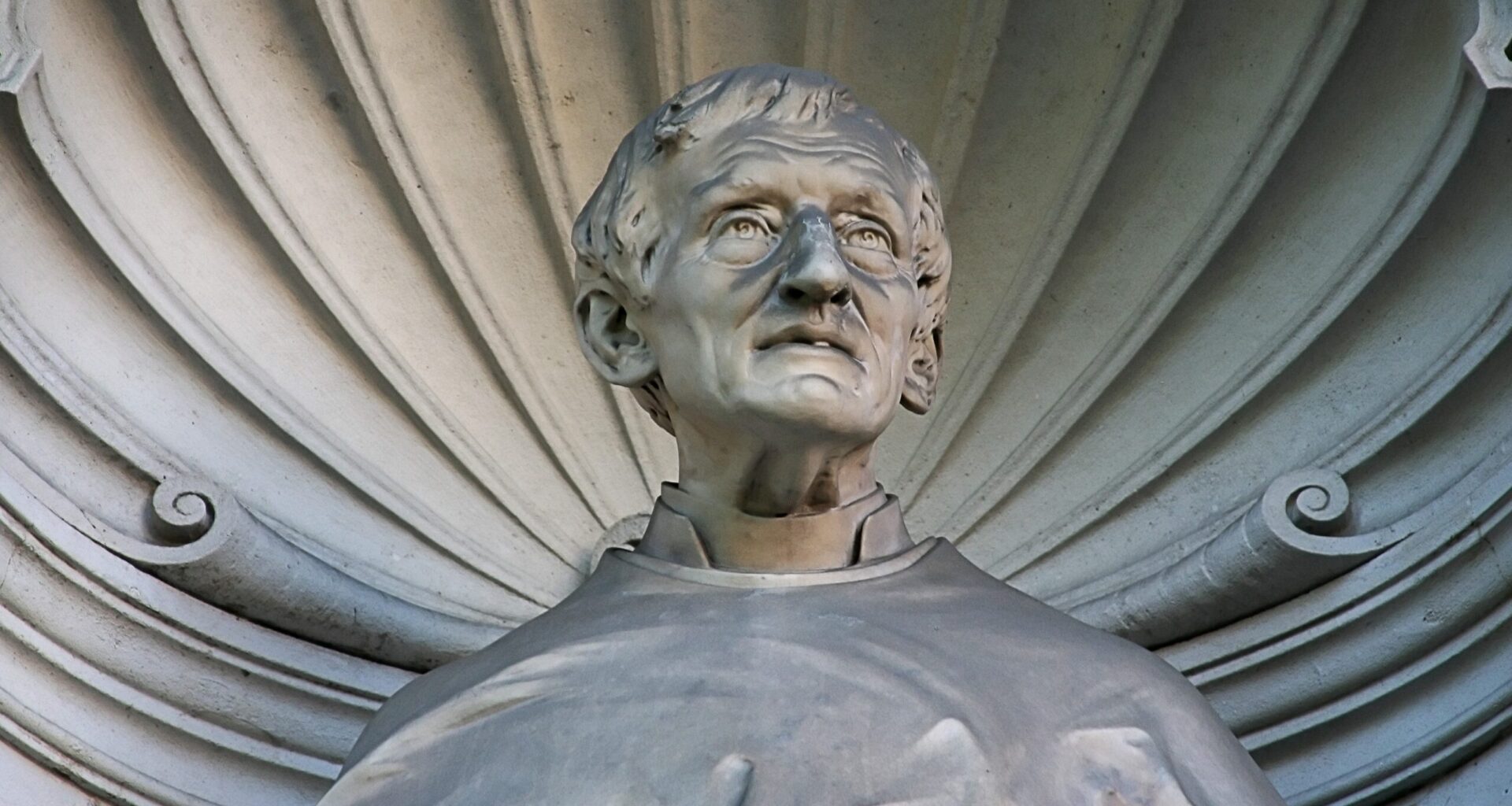During an audience on Thursday, July 31st with Cardinal Marcello Semeraro, prefect of the congregation for the causes of saints, Pope Leo XIV approved a vote by the congregation in favour of proclaiming Cardinal John Henry Newman a Doctor of the Church. The British cardinal thus joins the very exclusive club of Doctors of the Church—which now grows from 37 to 38 members.
Appointed cardinal by Pope Leo XIII, the clergyman will now become a Doctor of the Church through the action of Pope Leo XIV.
Cardinal Newman was a convert. Born in London in 1801, he received an Anglican education and became interested in matters of faith at an early age. In the religion of his fathers, he was recognised for his intelligence and clarity of thought.
Ordained a priest for the Church of England, he lived and worked in Oxford, where he was appointed parish priest of the university parish, but it was in Italy—like so many others before him—that he nourished his reflection on Catholicism and gradually became convinced that the truth of the Church of Christ was to be found in Rome. In the prestigious university city, within the Oxford Movement, intellectuals questioned the errors of Anglicanism and sought to draw closer to the Roman Catholic Church. On October 8th, 1845, after a long inner search, he asked to join the Catholic Church. He later described this turning point in his spiritual life in these words: “It was like coming into port after a storm.”
After that, he returned to Italy, this time to humbly begin his training as a seminarian. “It is so wonderful to be here,” he noted at the time. “It is like a dream, and yet so calm, so secure, so happy, as if it were the fulfilment of a long hope, and the beginning of a new life.” On May 30th, 1847, he was ordained a Catholic priest, with the peace of mind that comes with rediscovered certainty.
Back in England, Newman had his work cut out for him to convince his hardened compatriots not to persevere in the error of Anglicanism. He himself was the target of violent attacks. He wrote extensively to defend his rediscovered faith and to deepen his demanding thought, which aimed to always maintain a balance between faith and reason, between conscience, authority and obedience, between tradition and modernity. In May 1879, John Henry Newman was created cardinal by Leo XIII, even though he had remained a simple priest.
Pope Benedict XVI, who beatified the English cardinal in 2010, had a deep admiration for him. In 2019, Pope Francis proclaimed him a saint, paying tribute in his encyclical Dilexit nos to the motto chosen by the cardinal, “cor ad cor loquitur:” ultimately, the heart of the Saviour speaks to our heart.
His elevation to the rank of Doctor of the Church sends a very powerful signal. Newman is a complex and infinitely rich figure who lends himself to all kinds of patronage. Because of his background, some like to see him as a precursor of ecumenism and interreligious dialogue. But it is important to remember that it was through his contemplation of the Roman rite inherited from Saint Pius V that he ‘returned’ to Catholicism.
Pope Leo XIV’s decision to make him a Doctor of the Church should lead the faithful to rediscover the cardinal’s central teaching for our time, at a moment when the Catholic Church is desperately seeking to regain its balance after years of risky doctrinal experimentation. He is the man who brought the concepts of discernment and conscience to their highest degree of precision. On numerous occasions in his writings and sermons, Cardinal Newman drew attention to the dangers of religious subjectivism and liberalism in religion. In his speech for his appointment as cardinal, he emphasised: “Liberalism in religion is the doctrine that there is no positive truth in religion. It is inconsistent with any recognition of any religion as true. It teaches that all are to be tolerated, for all are matters of opinion.”
How can we not see a contradiction here with some of Pope Francis’ teachings, such as when, in September 2024, addressing a group of young people of various faiths in Singapore, the Holy Father told them that “all religions are a path to God,” comparing them to “different languages” leading to the same goal? Such a statement, while seemingly sympathetic, unfortunately had all the appearances of an apology for subjectivism. By proclaiming Newman a Doctor of the Church, Pope Leo XIV brings to the fore the objective dimension of the Christian faith, which is not one ‘language’ among others, nor a path equivalent to other spiritual traditions, but the place where the truth revealed by God in Jesus Christ is received.
Cardinal Newman’s lessons are endless, but they are particularly relevant for any conservative mind seeking to avoid the pitfall of ideological tension with modernity, without remaining stubbornly stuck in an idealized past that no longer exists. In Chapter V of his Essay on the Development of Christian Doctrine, he reminds us that this ‘development’ is not the result of a human will that can make faith say what is in its interest, subjecting it to the whims of the times, but establishes principles that guarantee its coherence. The authentic development of Christian doctrine preserves the initial model; remains faithful to principles; integrates new elements without ever altering the identity of the faith; confirms the legacy of the past without creating a break—and always proves fruitful.
These criteria of discernment apply to Christian doctrine, but also to any human reality derived from the tradition that a conservative wishes to cherish and transmit. Let us dare to say it: they are perhaps even the best safeguards we can hope for in politics.
